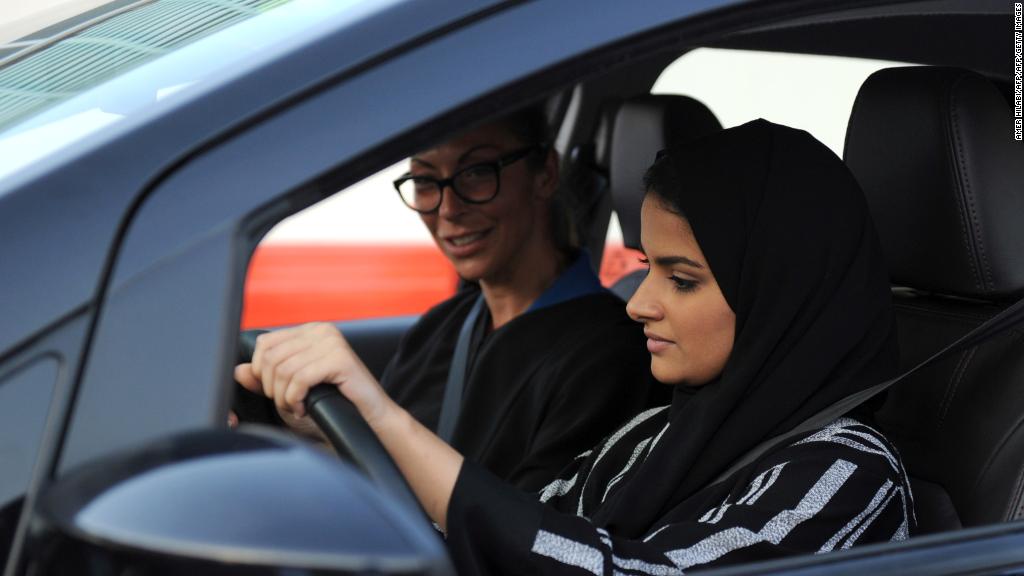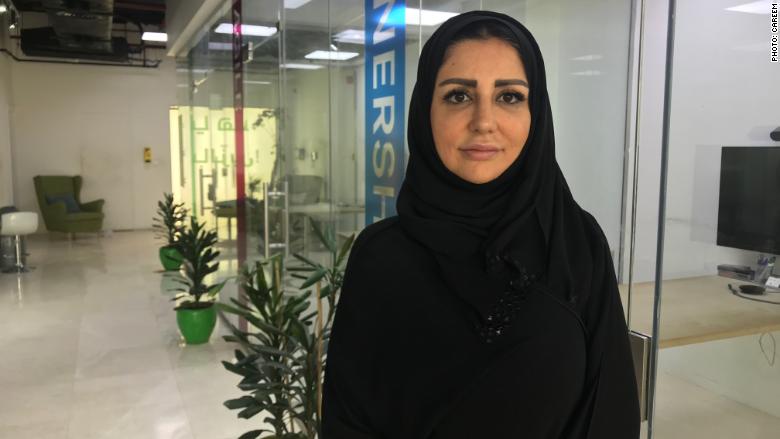
If you order a taxi anywhere in the world, chances are you'll get a male driver.
Careem — the Middle East's answer to Uber — is aiming to change that in one of the most conservative societies in the world by recruiting Saudi women to take the wheel after a female driving ban was lifted on Sunday.
Careem has received over 2,000 applications since announcing it would recruit so-called Captinahs — female drivers — in Saudi Arabia. A handful of these drivers have already hit the roads to serve male and female clients.
Enaam Al-Aswad, 43, is one of the faces of Careem's new program, even though she's still in process of exchanging her expired Syrian driving license for a Saudi one.
"I believe I'll be good in driving people around. I love driving and interacting with people," she told CNN on Saturday, the day before the female driving ban was lifted.
Al-Aswad, a single mother of two, said the job will suit her as she likes adventure and dislikes fixed working hours. She also works part-time as a makeup artist and communications manager.
"You can't depend on one source of income," she said.
Careem is aiming to have 20,000 Captinahs across the Middle East by 2020, according to Hisham Lary, Careem's team manager in Jeddah.
The firm already employs female drivers in other countries including the United Arab Emirates, Egypt and Morocco.

Over two thirds of Careem's clients in Saudi Arabia are women, said Lary. The driving ban forced them to depend on services like Careem and Uber to get around.
Lary said he's not worried that the policy change could lead to a drop in customers.
"We expect the demand to increase because the economy is increasingly moving," he said.
Rush hour in the traffic department
After the Saudi government announced plans to remove the driving ban last year, major car companies reworked their advertising campaigns to target Saudi women.
Ford (F) grabbed the spotlight by saying they would give a female driving advocate her dream Mustang. On Sunday, car washing shops and restaurants offered free services and special deals to women.
The Saudi traffic department said it received over 120,000 applications for new licenses as the nation prepared to lift its ban, the only country in the world with such a restriction. Some women are exchanging foreign licenses while others are aiming to get new licenses by completing 30 hours of training.
The demand has been so high that traffic departments and driving schools are struggling to keep up.
The Jeddah Driving School received over 8,000 applications but has only granted 82 licenses since the school opened over a month ago, said Omsia Almadani, the head of the school's instructors.
The changing face of Saudi Arabia
Scrapping the driving ban is the latest visible sign of change in Saudi Arabia.
The young Crown Prince Mohamed bin Salman is spearheading an ambitious economic reform plan called Vision 2030 that's aiming to diversify and modernize the conservative nation. Plans include a push into tourism and move away from the country's dependence on oil revenue.
"The vision itself is all about diversifying the economy and engaging the Saudis in the labor force. Engaging Saudis doesn't either mean male or female; it's all the Saudis," Lary said.
The religious police has been stripped of arrest powers and the Kingdom has eased restrictions to allow concerts and movie theaters. Still, critics are worried that the crown prince's top down approach to change could spark a backlash from conservative sections of society.
Lary dismissed concerns about violating conservative social norms by having female drivers join his service.
"Women have been riding with a male [driver] for years. It's just literally a matter of switching seats," he said.

